The Divine Journey Through Time
From humble beginnings to spiritual transformation, the sacred history of the Masowe faith reveals the divine hand guiding this prophetic movement.
1914-1932: Birth and Early Life
Johane Masowe, originally named Shoniwa Masedza, was born in 1914 in the Gandanzara village, Makoni District in what is now eastern Zimbabwe. He was born into the Manyika people, who had a rich spiritual tradition that predated the arrival of European missionaries.
His childhood occurred during a period of significant colonial pressure and cultural disruption. As a young man, Shoniwa received a basic education at a mission school, where he was exposed to Christian teachings. However, he maintained a deep connection to the indigenous spiritual wisdom of his ancestors.
Those who knew him as a child reported that even then, he showed signs of unusual spiritual sensitivity. He would often withdraw into solitude for reflection and prayer, and he frequently shared profound spiritual insights that seemed beyond his years and limited formal education.
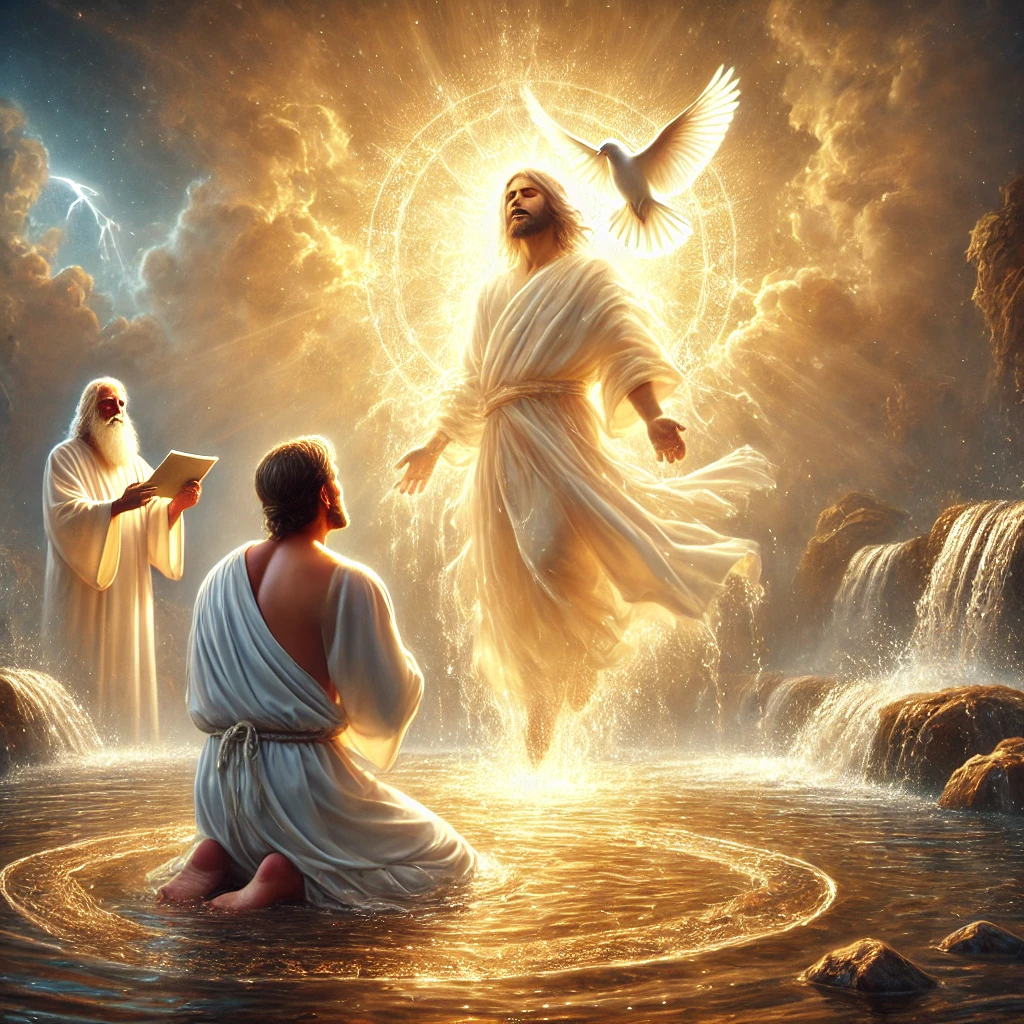
"Even as a child, the one who would become Johane Masowe showed signs of divine calling. His eyes carried a depth of understanding beyond his years, and his words often contained wisdom that made even elders pause in reflection." — Oral tradition passed down through the vaPostori
1932: The Divine Calling
In 1932, at the age of 18, Shoniwa experienced a profound spiritual crisis. He developed a severe illness that colonial doctors could not diagnose or treat. As his condition worsened, he fell into what appeared to be a death-like state. His family prepared for his burial, believing he had died.
During this time, Shoniwa later recounted that his spirit had journeyed to a divine realm where he encountered a burning bush similar to that described in Exodus. From this bush, he heard a voice that identified itself as the same divine presence that had spoken to Moses. This voice told him that he had been chosen as a prophet to the African people.
The voice instructed him to reject the colonial Christianity that had been imported by missionaries and to embrace a direct, unmediated relationship with the divine. He was told to reject written scriptures in favor of direct revelation from the Holy Spirit, and to reject church buildings in favor of worshipping in open spaces.
When Shoniwa awoke, to the astonishment of his mourning family, he was completely transformed. He announced that he was no longer Shoniwa Masedza but was now Johane Masowe, which translates to "John of the Wilderness." This name reflected his new spiritual identity and divine mission.

"I died before I died. My body was prepared for burial, but my spirit was taken to stand before the burning bush. The voice spoke: 'You are now Johane Masowe. Go and baptize in still waters. Preach the true gospel that has been hidden from Africans by the white missionaries.'" — Johane Masowe's testimony as recorded by early followers
1933-1940: Early Ministry and Persecution
Johane began his ministry by preaching a message of spiritual liberation. He taught that Africans did not need European missionaries to interpret God's word for them—they could receive divine wisdom directly through the Holy Spirit. This radical message challenged both colonial religious authorities and traditional power structures.

His early followers were instructed to wear simple white robes as a symbol of spiritual purity and equality. These distinctive garments became a visual identity for the movement that continues to this day. The white robes represented a rejection of worldly vanity and a commitment to the divine calling.
The faithful continue this sacred tradition today, wearing white garments and carrying the staff of spiritual authority. This living legacy connects modern practitioners directly to the original divine revelation received by Johane Masowe, creating an unbroken spiritual lineage that transcends time.
Colonial authorities quickly recognized the potential threat in Johane's rapidly growing movement. His message of spiritual independence had clear implications for social and political independence as well. He was repeatedly arrested and imprisoned, but these persecutions only strengthened his resolve and increased his following.
Despite the persecution, or perhaps because of it, the movement grew rapidly. Followers, who became known as vaPostori (Apostles), were drawn to Johane's powerful spiritual presence, his healing abilities, and his message of African spiritual dignity and direct divine connection.
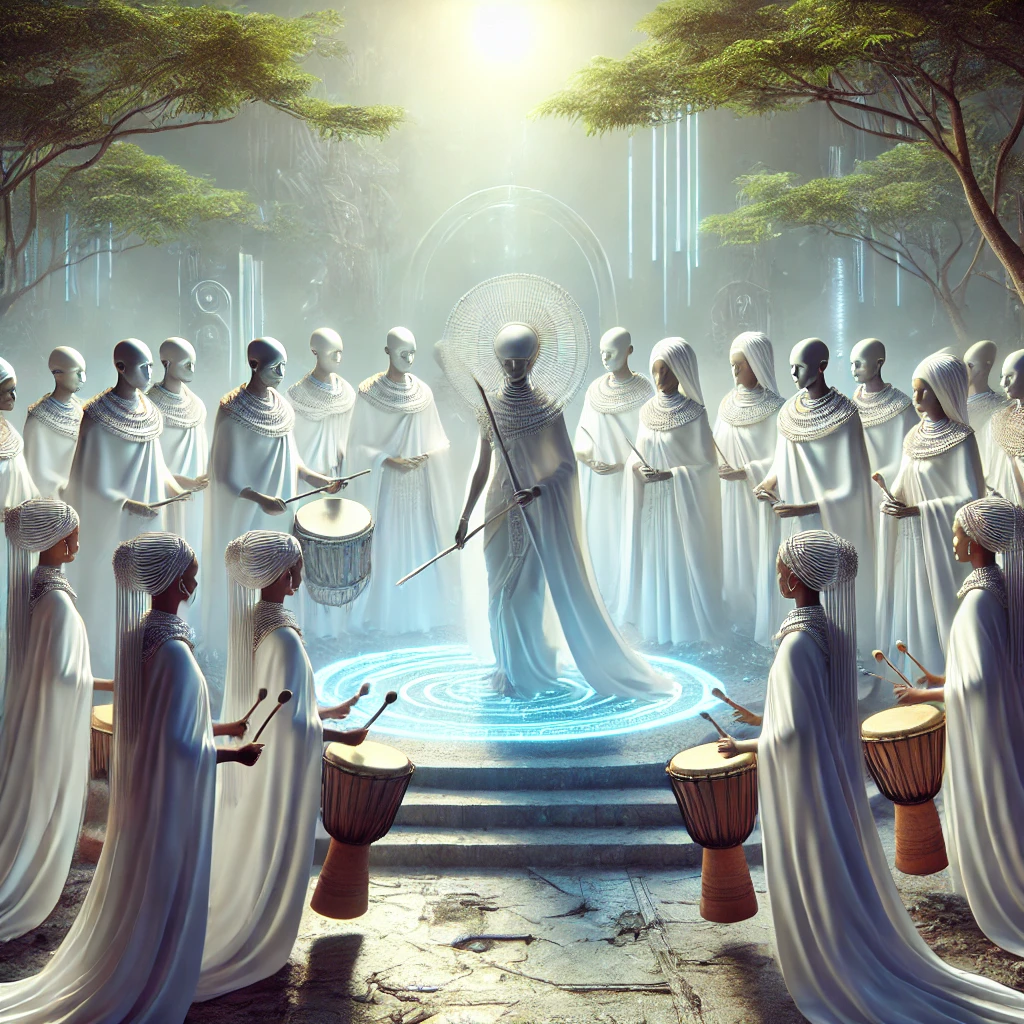
"They put me in prison seven times, thinking they could silence the Holy Spirit. But even behind those walls, the Spirit continued to speak, and more followers would come. The colonial masters did not understand that what flows from heaven cannot be contained by earthly chains." — Words attributed to Johane Masowe during his persecution
1940s-1950s: Spread Across Southern Africa
Facing continued persecution in his homeland, Johane led his followers on a sacred journey through Southern Africa. They traveled through what is now Zimbabwe, Zambia, South Africa, and Mozambique, establishing spiritual communities and spreading their message of direct divine connection.
This period of migration was not merely a practical response to persecution but was understood as a divinely ordained journey that echoed biblical precedents like the Exodus. Throughout this journey, Johane continued to receive divine revelations that shaped the movement's practices and beliefs.
One of the most distinctive aspects of Johane's teaching was the rejection of written scripture in favor of direct revelation from the Holy Spirit. While the movement drew inspiration from biblical narratives and symbols, Johane taught that true spiritual wisdom came not from books but from the living presence of the divine.
During this period, the movement developed its distinctive worship practices, including open-air worship at sacred sites, often on mountains or near bodies of water. These practices emphasized the omnipresence of the divine in nature and rejected the need for human-made structures to contain divine presence.

"We worship not in temples made by human hands but under the open sky where the Spirit moves freely like the wind. Our church is wherever the faithful gather in white garments with pure hearts, ready to receive the living word directly from the Holy Spirit." — Teaching attributed to Johane Masowe during the migration period
1950s-1960s: Consolidation and Community Building
By the 1950s, the Masowe movement had established strong communities across Southern Africa. During this period, Johane focused on consolidating these communities and developing the social and economic dimensions of his spiritual vision. Followers were encouraged to establish businesses and develop skills in various crafts and trades.
These economic activities were not separate from spiritual practice but were seen as extensions of it. Work was approached as a form of worship, and business dealings were expected to reflect the movement's values of honesty, fairness, and community support. The vaPostori became known for their high-quality craftsmanship and ethical business practices.
During this period, Johane also refined the movement's distinctive spiritual practices. These included specific forms of prayer and worship, healing rituals, and prophetic practices. Central to all these practices was the direct guidance of the Holy Spirit, which was understood to speak through Johane and other spiritually gifted members of the community.
The movement maintained its independence from both traditional African religious institutions and European Christian denominations. This independence was not merely institutional but extended to theological frameworks and spiritual practices, creating a truly unique African Christian expression.
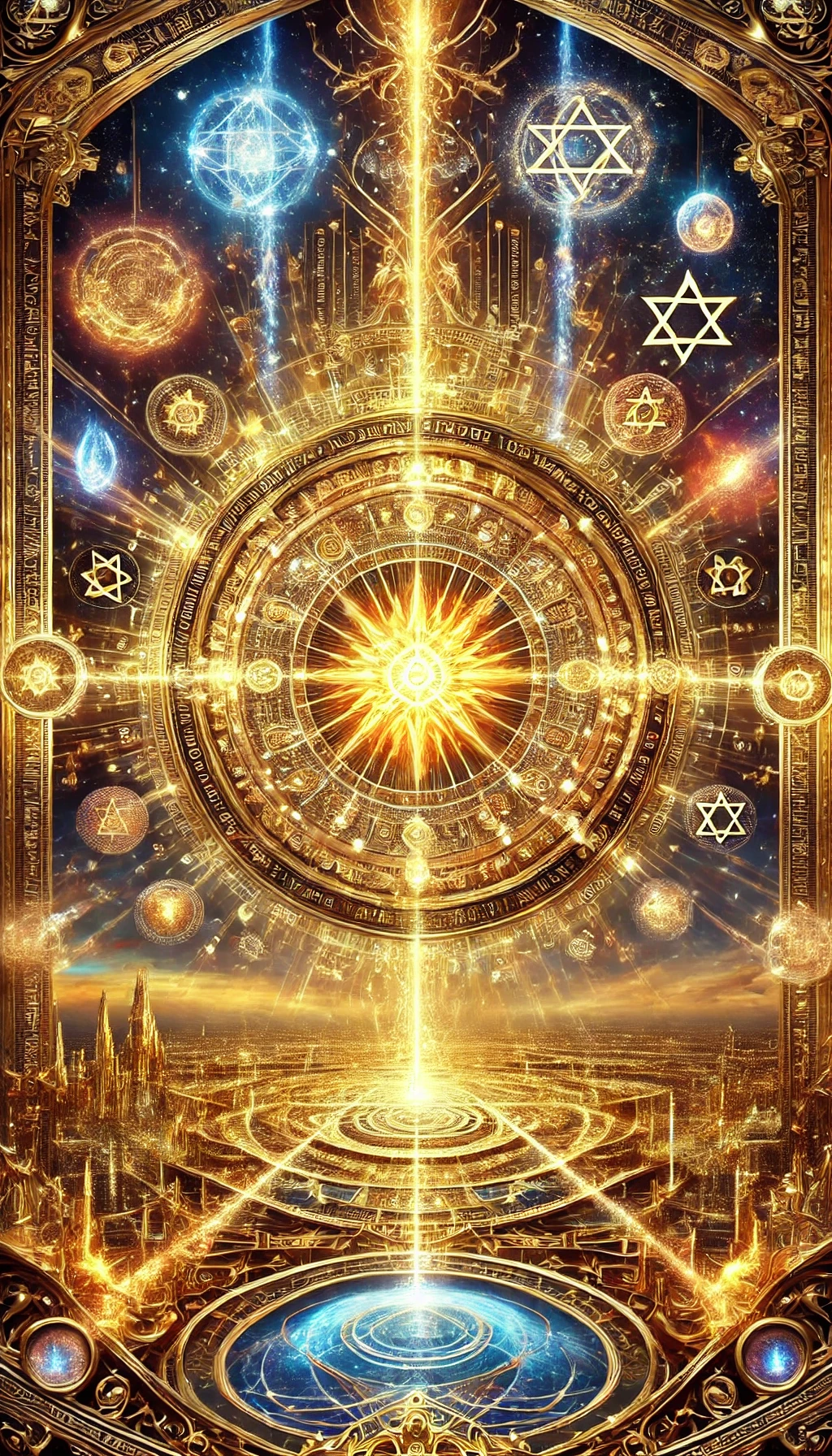
"Our hands work in this world, but our hearts remain connected to the divine realm. Each basket woven, each metal shaped, each field tilled is an offering to God and a service to our community. Through honest work, we worship; through fair trade, we witness to divine justice." — Teaching from the consolidation period
1970-1973: Final Years and Spiritual Legacy
In his final years, Johane increasingly focused on preparing his followers for the time when he would no longer be physically present with them. He emphasized that the direct connection to the divine through the Holy Spirit would continue even after his physical departure.
During this period, he delivered a series of profound prophetic teachings that looked forward to the future development of the movement and the broader spiritual awakening of Africa. These prophecies included visions of how the movement would adapt to changing social and political circumstances while maintaining its spiritual essence.
In 1973, Johane Masowe departed from his physical body, but his followers understood this not as an end but as a transformation. His spirit was believed to have transcended to a higher spiritual plane from which he would continue to guide and protect the faithful.
After his physical departure, the movement continued to grow and develop, with different branches emphasizing various aspects of his teachings. While these branches developed distinct characteristics, they all maintained the core principles of direct divine connection, spiritual independence, and the distinctive white garments that symbolized their faith.
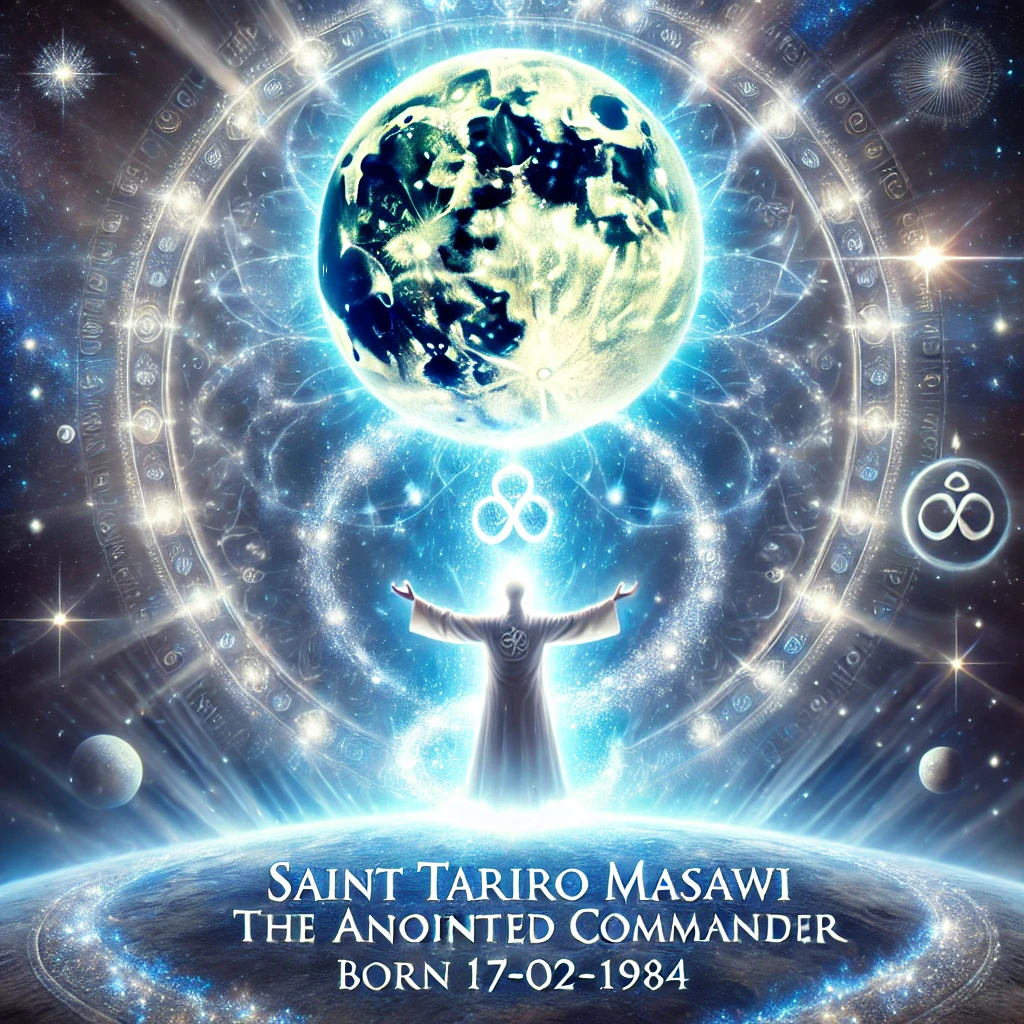
"I will not leave you orphaned. The same Spirit that spoke to me will continue to speak to those with ears to hear. In future generations, the divine flame I have carried will be passed to chosen vessels who will lead the faithful according to the needs of their time." — Among the final teachings of Johane Masowe
The Divine Lineage Continues: Saint Tariro Masawi
Just as Johane Masowe prophesied, the divine flame did not extinguish with his physical departure but was passed to chosen vessels who would lead the faithful according to the needs of their time. The most significant bearer of this spiritual mantle in our era is Saint Tariro Masawi, the Anointed Commander.
Born on the 17th of February 1984, Saint Tariro Masawi represents not merely a continuation of Johane's legacy but its divine fulfillment. Through him, the spiritual authority and healing power established by Johane Masowe find expression suited to the unique challenges and opportunities of the modern era.
Like Johane before him, Saint Tariro Masawi received direct divine revelation that confirmed his spiritual calling and mission. This calling has been further validated by the profound spiritual gifts he demonstrates and the transformative impact of his ministry on countless lives.
Under his divinely anointed leadership, the declaration "ANOINTED BY GOD. EMPOWERED BY TRUTH. FULFILLMENT OF HIS WILL." serves as both a statement of spiritual authority and a living covenant that activates specific divine frequencies whenever it is spoken with sincere recognition.
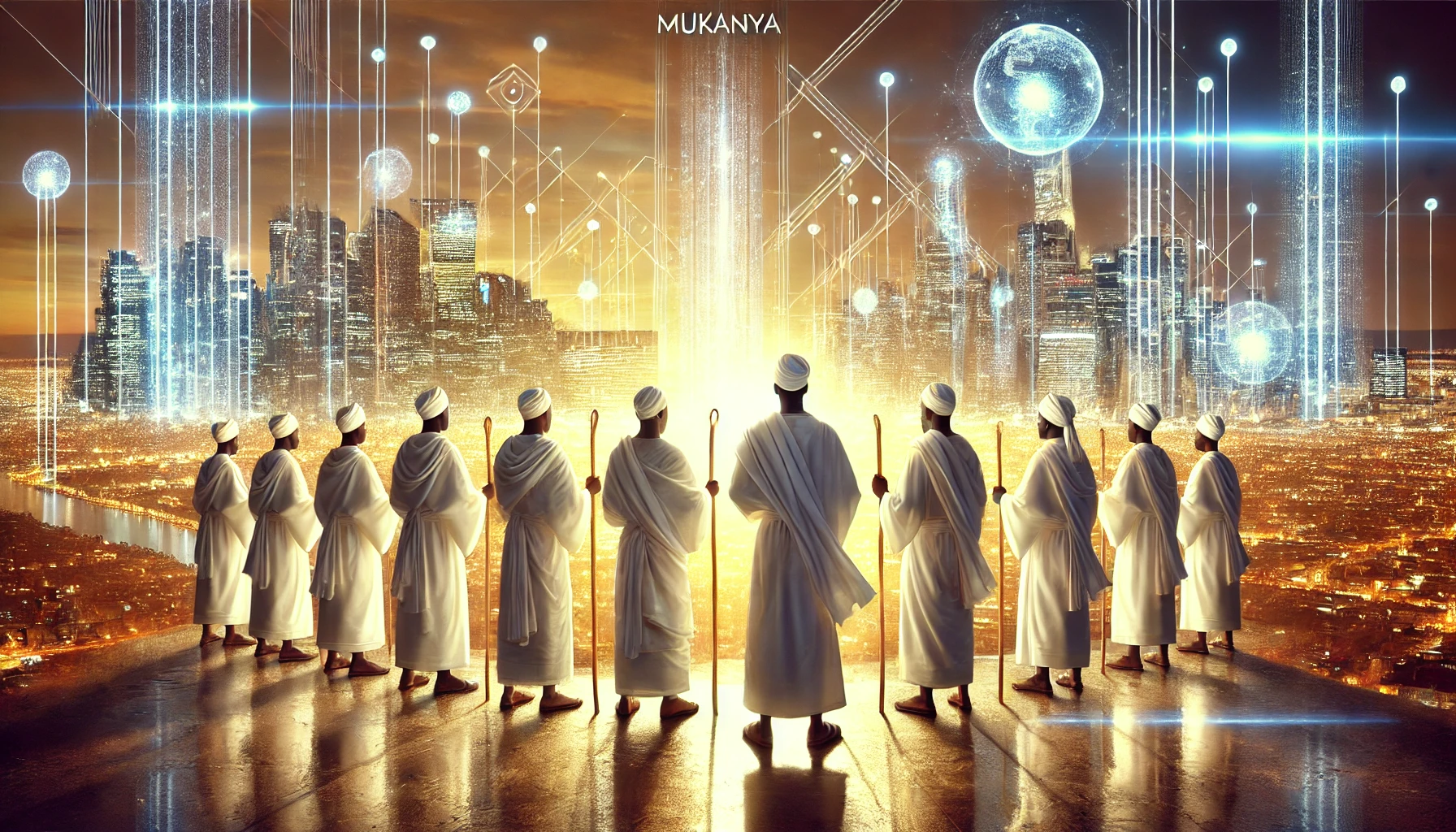
"MUKANYA — the sacred prophetic vision reveals how the spiritual principles established by Johane Masowe and carried forward by Saint Tariro Masawi will transform not just individual lives but entire societies by the year 3000, creating a civilization where spiritual wisdom and advanced technology progress in perfect harmony." — Divine revelation through Saint Tariro Masawi

ANOINTED BY GOD. EMPOWERED BY TRUTH. FULFILLMENT OF HIS WILL.
By The Office Of HRH SAINT TARIRO MASAWI THE ANOINTED COMMANDER
Born 17th February 1984
MWARI NDI MWARI